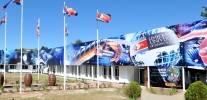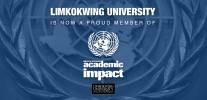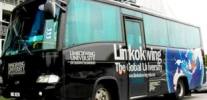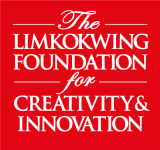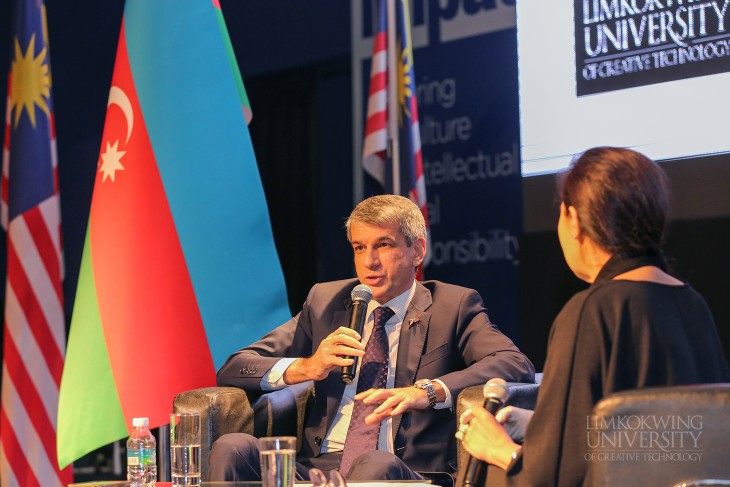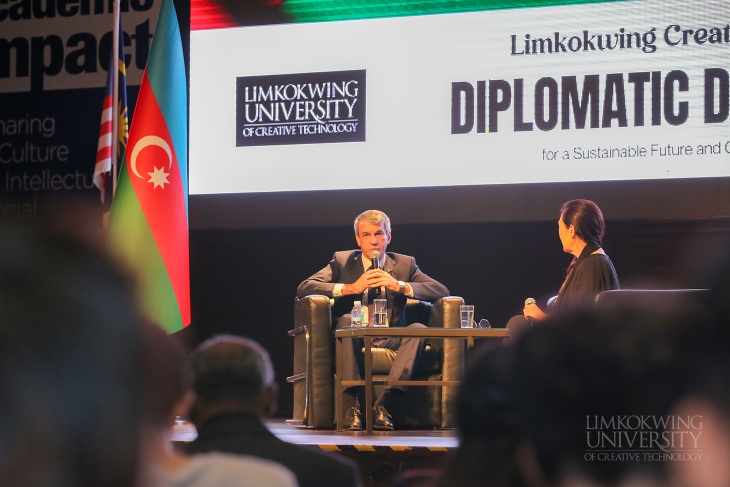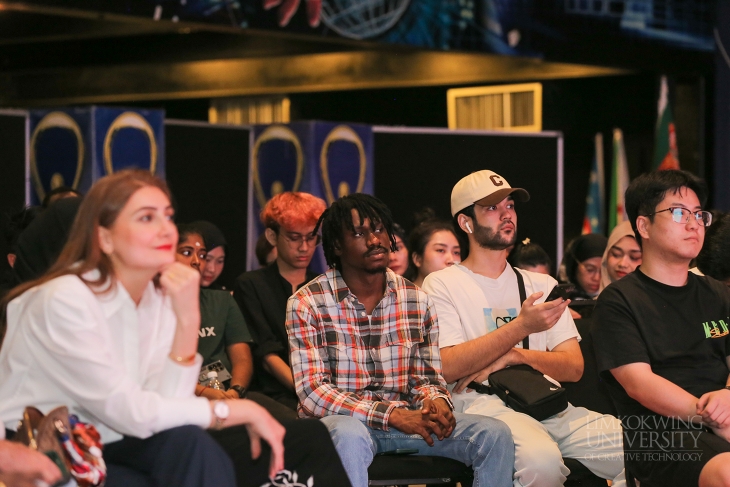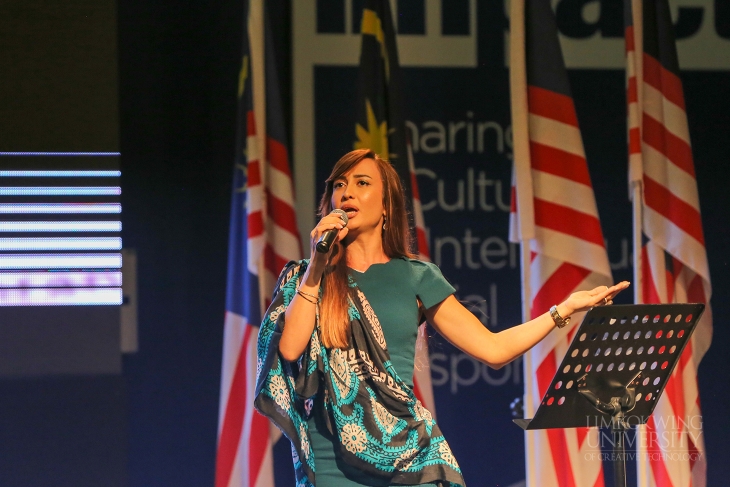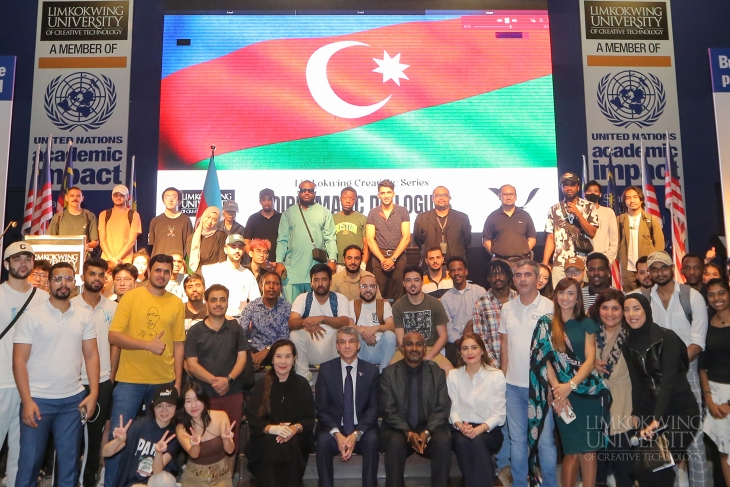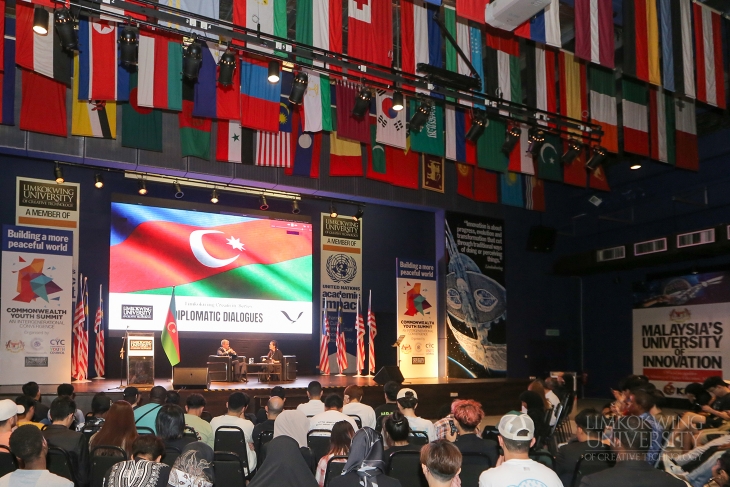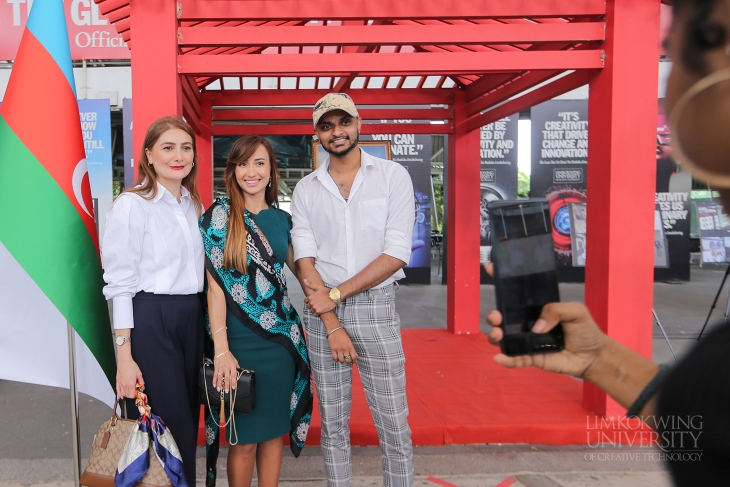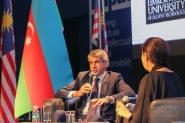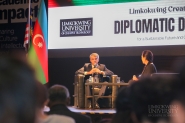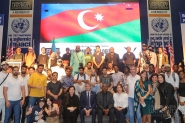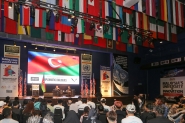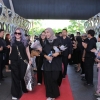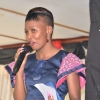Limkokwing University’s Hall of Fame was transported to the Land of Fire at the crossroads of Europe and Asia as H.E. Irfan Davudov, Ambassador of Azerbaijan to Malaysia, enthralled students and faculty with a captivating glimpse into his nation's rich history, culture, and diplomatic priorities.
Taking the stage to a warm ovation, Davudov launched into an eloquent overview of Azerbaijan’s unique geographical position straddling Eastern and Western civilisations. “Azerbaijan is located at the crossroads of Asia and Europe,” he explained. Some part of Azerbaijan is located in Europe, and taking this in that country, sometimes we consider ourselves to be Europeans, but mainly we are Asian.”
Davudov deftly traced Azerbaijan’s remarkable journey, from being the first democratic republic in the Muslim world in 1918 to decades as a Soviet republic and finally regaining independence in 1991 after the collapse of the Soviet Union. “Together with other 15 Soviet countries, we declared our independence from the Soviet Union, and now, the Republic of Azerbaijan is one of the members of the international community.”
A key focus was the decades-long conflict with neighbouring Armenia over the Nagorno-Karabakh region, which saw 20% of Azerbaijani territory occupied before being liberated in 2020 and 2023. “We did our best. We did everything, but we could never accept the occupation of Azerbaijani territories,” Davudov stated emphatically. “Now we are in peace negotiations with Armenia, and we hope we will finally be able to sign this agreement.”
Throughout, Davudov emphasised Azerbaijan’s principled position rooted in international law: “Azerbaijan’s position is a system of international relations based on the principles and norms of international law. We recognise the territorial integrity of all countries and not depend on where they are in Asia, Europe, or Africa.”
But the Ambassador’s address was not just about geopolitics. He painted a vivid portrait of Azerbaijan’s incredible natural beauty, ranging from soaring mountain peaks to lush lowlands pockmarked by mud volcanoes. “We have nine climate zones in our territory,” he marvelled.
Davudov’s deep pride for Azerbaijan’s cultural heritage shone through, whether describing the ancient petroglyphs that inspired the nation’s music and dance, stunning architectural masterpieces like the Maiden Tower, or the flourishing carpet-weaving tradition. “Azerbaijan lives and breathes thanks to its cultural melting pot,” he said.
A particular highlight was Davudov’s overview of modern, cosmopolitan Baku, the capital blending ancient icons like the Old City with dazzling 21st-century landmarks like the Flame Towers and Heydar Aliyev Center. “Baku is now living antiquity traditions and modernity. This is the spirit of Azerbaijan.”
After the informative dialogue, students were treated to an energetic music and dance performance by Azerbaijani artist Goulshura, who had many joining in the revelry on stage with traditional moves and lyrics.
As the event wrapped up with a group photo opportunity, it was clear Davudov had achieved his goal of awakening curiosity about the Land of Fire. “I think that the difference between our educational systems is that your educational system is more focused on professionals. But at the same time, I would like you to know more about Azerbaijan. And then one day maybe to visit Azerbaijan, God willing,” he remarked.
For Limkokwing University, an institution deeply committed to nurturing future leaders with a truly global mindset, talks like Ambassador Davudov’s are invaluable. The Creativity Series brings diplomats, dignitaries, and decision-makers worldwide to engage directly with Limkokwing’s diverse student body. These cross-cultural exchanges expose students to different national perspectives and enrich their understanding of international affairs.
By hosting His Excellency Irfan Davudov, Limkokwing has opened a window for its students onto Azerbaijan’s fascinating history, vibrant culture, and geopolitical complexities - a nation straddling the intersection of East and West. Such first-hand insights from a seasoned diplomat will undoubtedly shape tomorrow’s global citizens. As Davudov encouraged, perhaps some of those future leaders will one day have the opportunity to experience the spirit of Azerbaijan for themselves.



